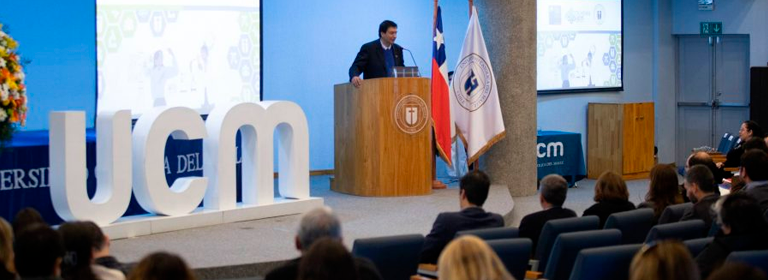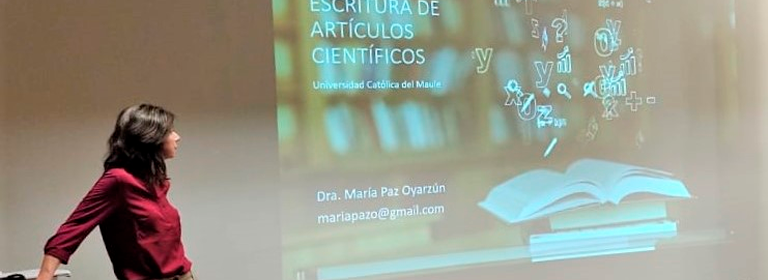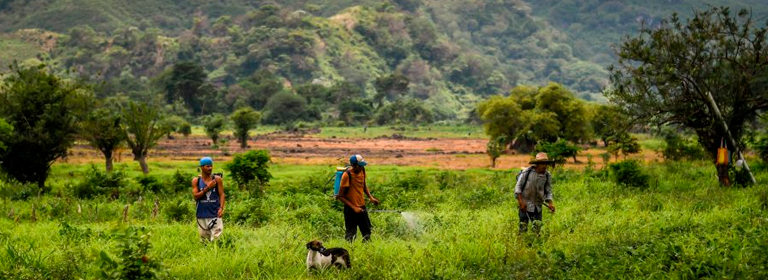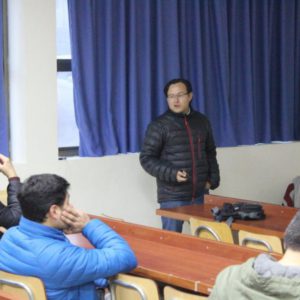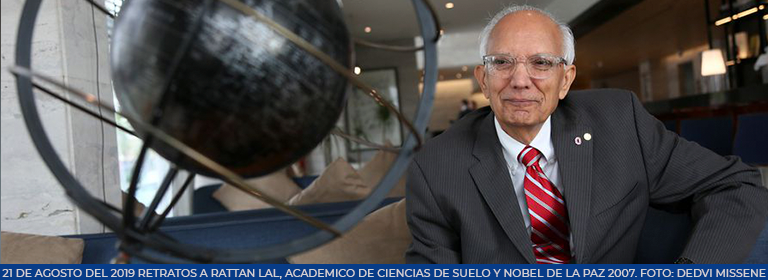Authorities of the Universidad Católica del Maule presented the initiative, which will promote free access to scientific information. The project is financed by the National Agency for Research and Development, ANID.
 With a keynote speech, the Universidad Católica del Maule launched a project that will allow citizens to access the knowledge generated by its academic body, under the title «Colmena UCM».
With a keynote speech, the Universidad Católica del Maule launched a project that will allow citizens to access the knowledge generated by its academic body, under the title «Colmena UCM».
The initiative will be implemented by the Research Department of the campus, which was awarded resources from the «Open Science» contest promoted by ANID.
«For the university, this project represents an institutional commitment with ANID and also with society. We will work on the management of available scientific data, to offer open access so that society can learn about what we do and have access to adequate and relevant information in their daily decision making,» said the Vice Rector for Research and Graduate Studies, Hernán Maureira.
«The greatest scope will be to democratize knowledge but, at the same time, it will mean making an institutional effort to change the way and culture of doing research within our institution,» said the authority.
«Colmena UCM» will generate an online platform, in alliance with the Library System of the house of studies, where you can find everything from undergraduate and graduate theses to scientific publications.
«To make this type of cultural changes in the university, we need infrastructure and I believe that one of the main benefits is that we are going to transform the current technological platforms to integrate publication data,» said the Director of Research, Liliana Zuñiga.
The digital support, which will also allow UCM to classify its research, will be aligned with the «Open Access Policy to Scientific Information and Research Data», which seeks to ensure the availability of knowledge.
«We talk about cultural change because sometimes as academics we are a bit selfish with our data. Open Science came for that to change, so that it is not a competition between academics, but a collaboration, because competition slows down science. It slows it down and makes it biased,» Zuñiga emphasized.
«New normality»
PhD. in Psycholinguistics, Lucía Castillo, who gave the keynote talk, explained that the COVID-19 pandemic marked a before and after for scientific methods.
«This is a process that accelerated from the COVID-19 crisis, whose complete genome became available one month after a documented case. The response of the scientific community, in coordination with industry and institutions, made it possible to quickly handle a crisis that under normal circumstances would have taken years to resolve. From this opportunity, UNESCO and the UN recognize that open science is the new normality, as a very important accelerator of the transformations that our planet needs», said the researcher from the Universidad Católica de la Santísima Concepción, who belongs to the first generation of institutions that obtained funds in this line.
The second generation includes, in addition to UCM, the universities of Bío-Bío, La Serena, Atacama, Técnica Federico Santa María, and Universidad Autónoma de Chile.

